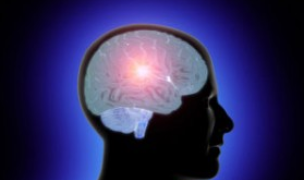 10 Terms
10 TermsHome > Industry/Domain > Biology > Immunology
Immunology
Immunology is the study of the structuree and function of the immune system which is responsible for the protection from invading foreign macromolecules or organisms. It is a broad branch of biomedical science that covers the study of all aspects of the immune system in organisms. It deals with the physiological functioning of the immune system in both healthy states and immunological disorders (autoimmune diseases, hypersensitivities, immune deficiency, transplant rejection); the physical, chemical and physiological characteristics of the components of the immune system in vitro, in situ, and in vivo.
Industry: Biology
Add a new termContributors in Immunology
Immunology
anaphylaxis
Biology; Immunology
Immediate hypersensitivity response to antigenic challenge, mediated by IgE and mast cells. It is a life-threatening allergic reaction, caused by the release of pharmacologically active agents.
anergy
Biology; Immunology
A state of antigen-specific nonresponsiveness in which a T or B cell is present but functionally unable to respond to antigen.
ankylosing spondylitis
Biology; Immunology
A chronic inflammatory disease affecting the spine, sacroiliac joints, and large peripheral joints. There is a major genetic predisposition, as revealed by increased incidence in selected families. ...
antibody
Biology; Immunology
Serum protein formed in response to immunization; antibodies are generally defined in terms of their specific binding to the immunizing antigen.
antibody-dependent, cell-mediated cytotoxicity (ADCC)
Biology; Immunology
A phenomenon in which target cells, coated with antibody, are destroyed by specialized killer cells (NK cells and macrophages), which bear receptors for the Fc portion of the coating antibody (Fc ...
antigen
Biology; Immunology
Any foreign material that is specifically bound by antibody or lymphocytes; also used loosely to describe materials used for immunization. Compare with immunogen.
antigen presentation
Biology; Immunology
The display of antigen as peptide fragments bound to MHC molecules on the surface of a cell; T cells recognize antigen only when it is presented in this way.


